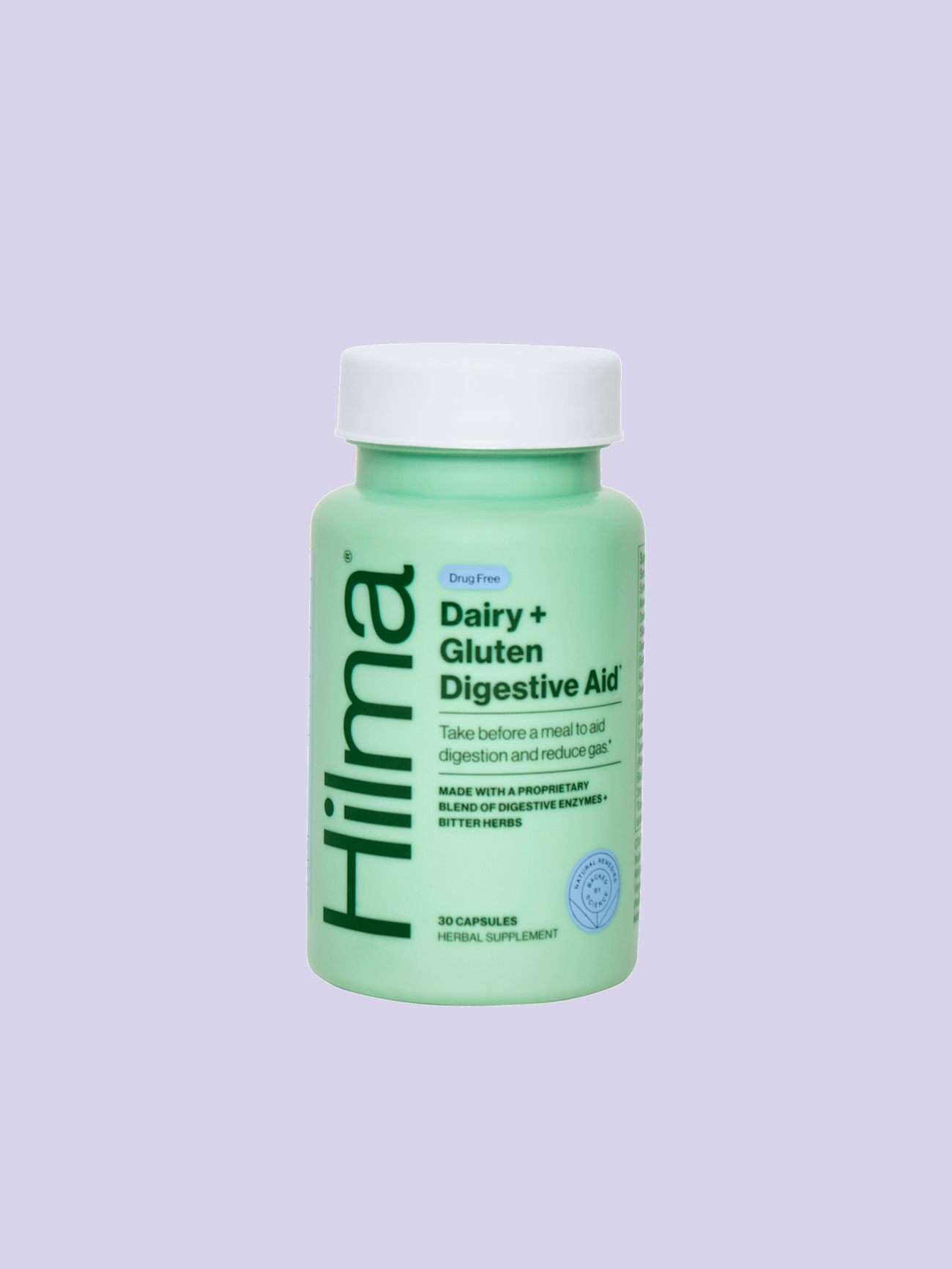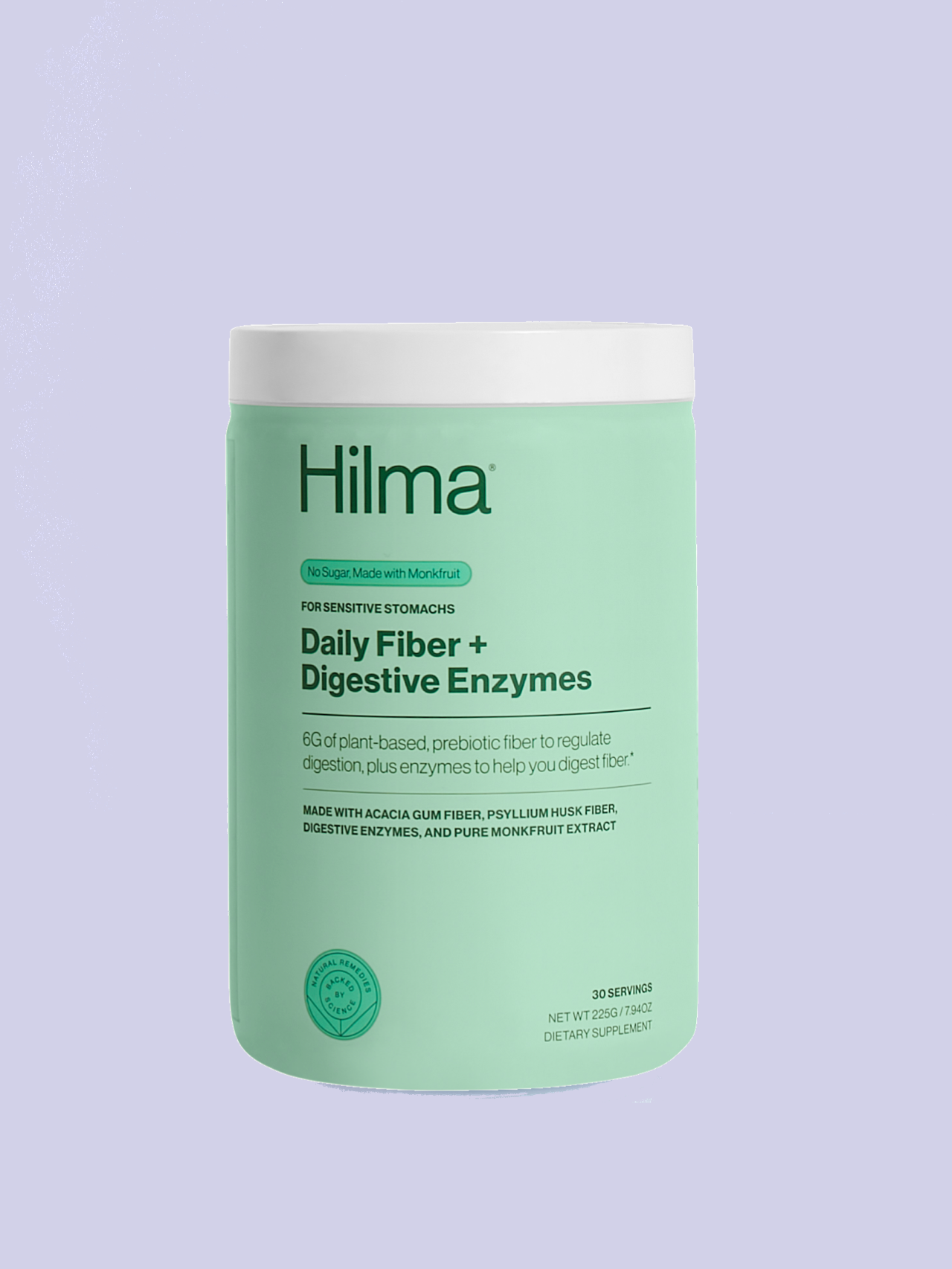
Navigating the maze of gut health can often feel like solving a complex puzzle. One crucial piece of that puzzle? Digestive enzymes. These naturally occurring proteins are game-changers for anyone looking to optimize their digestive wellness.
Whether you’re dealing with lactose intolerance, chronic pancreatitis, or simply aiming to improve nutrient absorption, understanding when and how to incorporate digestive enzyme supplements can support your quality of life.
Let’s dive into the dynamic world of digestive enzymes and uncover the optimal timing to maximize their benefits, ensuring your gut health is nothing short of excellent.
First Things First — What Are Digestive Enzymes?
A digestive enzyme is a protein that accelerates reactions involved in digestion. These enzymes function as catalysts within our bodies, facilitating various processes. Digestive enzymes encompass a wide category of enzymes, including those derived from the pancreas, plants, and fungi.
The pancreas is the main producer of digestive enzymes. However, they are produced all along the digestive tract from the salivary glands to the small intestine.
Why Should You Consider Taking Digestive Enzymes?
Curious about how digestive enzymes can support your gut health and overall wellness? Let's explore the compelling reasons to integrate them into your daily routine.
Enhances Nutrient Absorption
Digestive enzymes help break down starches, proteins, and fats into smaller molecules, making it easier for the body to absorb nutrients. This can be particularly beneficial for individuals with enzyme deficiencies or conditions like exocrine pancreatic insufficiency (EPI).
Supports Gut Health
Regular intake of digestive enzymes may contribute to a healthier gastrointestinal environment. Enzymes like amylase, lipase, and protease facilitate the digestion of carbohydrates, fats, and proteins, respectively, soothing symptoms like bloating, gas, and constipation.
Aids in Managing Food Sensitivities
For those with lactose intolerance or difficulty digesting dairy products and grains, dairy and gluten digestive enzymes like lactase and alpha-galactosidase can be especially helpful. These enzymes help break down lactose and complex carbs, making it easier to enjoy a wider variety of foods without discomfort.
Promotes Digestive Comfort
Digestive enzymes can act as soothing agents for the stomach, helping to calm cramping and discomfort after meals. This can be particularly useful for individuals dealing with irritable bowel syndrome (IBS) or food intolerances.
Supports Overall Digestive Efficiency
By aiding the breakdown and assimilation of foods, digestive enzymes ensure that your digestive system runs smoothly. This can lead to better energy levels and a feeling of general well-being, as your body is better equipped to handle the foods you eat.
When Is the Best Time To Take Digestive Enzymes?
Now that you've got the lowdown on what digestive enzymes are and why you should consider adding them to your routine, you might be wondering: when is the best time to actually take them?
Before a Meal
The ideal time to take digestive enzymes is 15 to 20 minutes before a meal. The reasoning is that this gives time for the enzymes to reach the stomach and mix with the gastric juices before food does.
During a Meal
Digestive enzymes during a meal can also be effective when the enzyme targets ingredients in the food. For example, peptidase alongside a meal that contains gluten and lactose with a meal that contains dairy.
After a Meal
If you have reached the end of the meal and you realize you forgot to take your digestive enzymes, you have not necessarily missed your opportunity. The enzymes can still help aid in digestion if you are experiencing bloating and abdominal pain associated with indigestion.
Who Needs Digestive Enzymes?
Digestive enzymes are essential for everyone, but certain individuals may find them particularly beneficial for maintaining optimal digestive health. Whether due to specific health conditions or lifestyle factors, understanding who might need extra support can help personalize dietary choices and wellness strategies.
Individuals With Digestive Health Conditions
People with conditions like exocrine pancreatic insufficiency (EPI), cystic fibrosis, or chronic pancreatitis often produce insufficient digestive enzymes. This can lead to difficulty in breaking down foods and absorbing nutrients effectively. Supplementing with digestive enzymes can be crucial for these individuals to aid their digestive processes.
Those With Food Sensitivities
If you struggle with lactose intolerance or sensitivity to gluten, specific enzymes like lactase for dairy products and peptidase for gluten can help manage these sensitivities. By assisting in breaking down these challenging substances, dairy and gluten digestive enzymes can soothe gastrointestinal discomfort and broaden dietary options.
Older Adults
As we age, natural enzyme production can decrease, which might lead to increased digestive discomfort and less efficient nutrient absorption. Supplementing with enzymes can help older adults maintain a healthier digestive system and support their overall nutritional status.
Individuals Following High-Protein Diets
Diets rich in protein can be challenging for the digestive system to handle. Enzymes such as protease help break down proteins into amino acids, making digestion easier and helping prevent feelings of heaviness or bloating after meals.
People Experiencing Occasional Digestive Discomfort
Even if you don't have a chronic condition, factors like overeating or consuming heavy meals can lead to occasional digestive issues. Digestive enzymes can provide relief from symptoms like bloating, gas, and indigestion, promoting a more comfortable digestive experience.
What’s the Best Way To Take Digestive Enzymes?
Finding the right way to incorporate digestive enzymes into your routine can greatly enhance their effectiveness. For those with sensitive stomachs or specific digestive health goals, choosing something like our Daily Fiber + Digestive Enzymes can be especially beneficial.
This unique blend combines plant-based, prebiotic fiber with digestive enzymes, creating a gentle yet effective formula that supports digestion and regularity without causing bloating. It's ideal for daily use, ensuring your digestive system functions smoothly with the right balance of fiber and enzymes for optimal health.
What Are Some Natural Sources of Digestive Enzymes?
While digestive enzyme supplements are an excellent way to boost your enzyme intake, nature also offers a bounty of foods rich in these essential proteins. Incorporating these natural sources into your diet can complement your digestive enzyme regimen, providing a delicious and holistic approach to enhancing digestive health.
Here’s a look at some of the best natural sources of digestive enzymes:
Pineapple
Rich in bromelain, pineapple is not only a tropical treat but also a powerful source of digestive enzymes that help break down proteins into amino acids and small peptides. Bromelain is especially helpful in soothing the stomach and reducing discomfort after protein-heavy meals.
Papaya
Papaya contains papain, an enzyme effective in breaking down proteins and supporting a smooth digestive process. This makes papaya an ideal fruit for promoting digestive health, especially when consumed before or during a meal.
Mango
Mangoes are not only delicious but also contain amylase, an enzyme that helps break down carbs into sugars such as glucose and maltose. Amylase activity in mangoes increases as the fruit ripens, breaking down the starches to sugar, making riper mangoes a better choice for digestive support.
Avocados
Avocados are a source of lipase, an enzyme that aids in the digestion of fats. Adding avocados to your meals can help your body more efficiently process and absorb nutrients from fats.
Honey
Raw honey is packed with a variety of enzymes, including diastase (which helps digest starches), invertase (which assists in breaking down sucrose into glucose and fructose), and protease (which breaks proteins down into amino acids).
Bananas
Bananas contain several digestive enzymes, including amylase and glucosidase, which help in the digestion of carbohydrates. This makes bananas a great snack for promoting healthy digestion throughout the day.
Kefir
The bacteria present in kefir produce lactase during the fermentation process, aiding in the digestion of lactose within the beverage. Kefir is particularly beneficial for people with lactose intolerance, as it can help reduce symptoms of bloating and discomfort associated with dairy consumption.
This information is for educational purposes only and should not be taken as medical advice. Please consult a physician before treating any disorder.
Sources:
Digestive Enzymes and Digestive Enzyme Supplements | Johns Hopkins Medicine
Bromelain Information | Mount Sinai - New York
Digestive Enzyme Supplements: Benefits, Risks And More | Forbes Health
Plant sources of acid stable lipases: potential therapy for cystic fibrosis | PubMed




